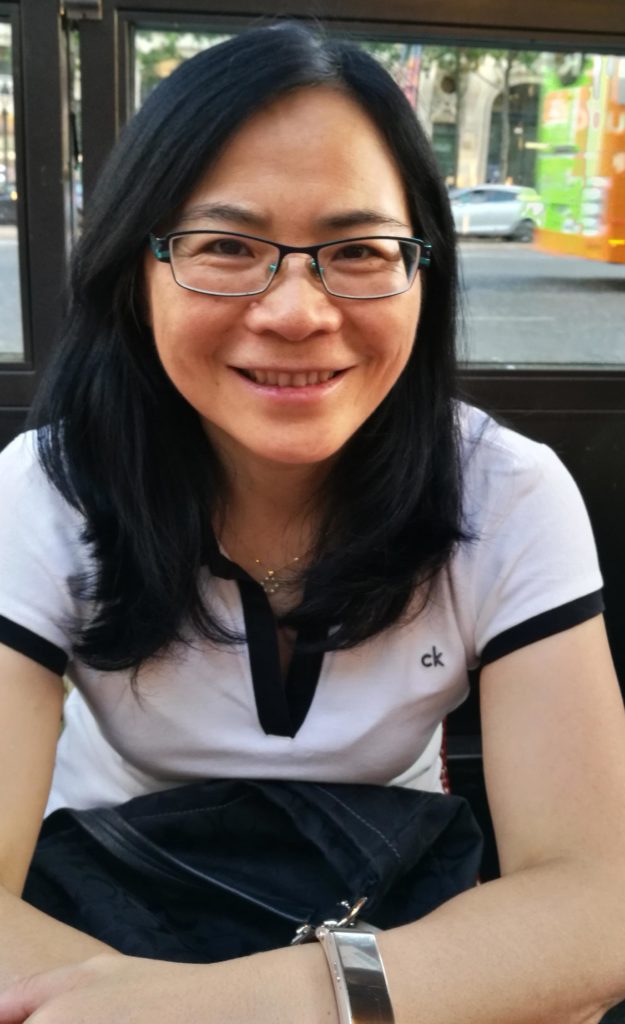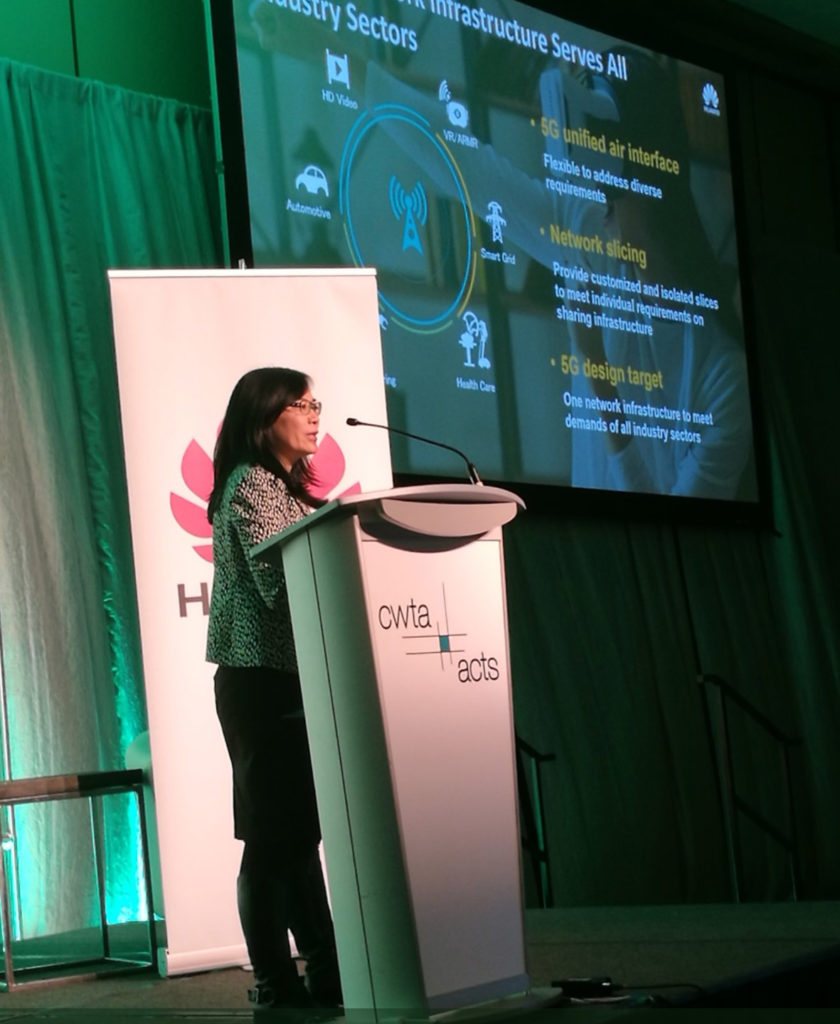
Imagine playing a key role in the development of not one but two generations of wireless technology.
Our first esteemed guest in The Women Behind Wireless series has done just that. Huawei fellow and senior director of the company’s Canadian wireless technology lab Dr. Peiying Zhu contributed significantly to the 4G wireless standard and is now doing the same for 5G.
Previous to working at Huawei, Dr. Zhu was a fellow and director of advanced wireless access systems at Nortel.
Dr. Zhu speaks on her career, the lessons she’s learned, and how it feels to be a part of the creation of wireless standards that play a large role in determining societal changes and the global economy.
MobileSyrup: What is the most important thing you learned when you first started out in wireless?
Dr. Zhu: What I found was that there’s always a hot topic area. I was studying computer vision and AI in the 80s, and the reason I started in this area at the time was because it was a hot topic.
They painted the picture that it would happen shortly, but then the bubble burst. By the time you finished studying, you found the field didn’t happen as you thought it would happen, and you couldn’t even find a job. So, I switched to wireless.
What I learned is: you need to learn some solid background knowledge, instead of just going to the new hot niche. It’s good to have broad knowledge.
MS: What interested you about wireless technologies?
Dr. Zhu: I was reading about it in a magazine, because at the time wireless was also new — not completely new, but still at the beginning. It looked quite attractive and looked like it had potential.
MS: What’s hardest about your career?
Dr. Zhu: My entire career is in research and innovation, and I found that it’s more difficult to do research because often, many companies or governments are not as invested in long term research.
Companies are focused on profit, the government has reduced funding. Because the whole environment is focused on money, companies have a lot of pressure.
The other problem is that internet companies like Google and Amazon, they are doing new stuff that doesn’t necessarily require fundamental long-term research. It’s a quick turnaround.
MS: What do you love about your career?
Dr. Zhu: For me, I find that our area has lots of opportunity and new stuff to explore. I’m not one who likes things that are stable and you know what to do everyday. I like the unknown.
MS: What’s the most interesting project you’ve ever worked on?
Dr. Zhu: I worked on the 4G network for a long time, it took almost 10 years to really see the 4G network become mature. At the beginning, we were really struggling but by the end it was a huge success.
Now afterwards, working in 5G, I find it’s also really interesting.


MS: Why was bringing 4G to market a struggle?
Dr. Zhu: Mainly it was because 3G was struggling. At the time, typically the previous generation [2G] did phone calls etc., and we were trying to bring up mobile data.
Maybe the hype was too high. Spectrum auctions went for a huge price, but it took a long time for people to get used to using the internet on their phone.
The whole thing was struggling and then we proposed a new generation and naturally people had doubts, because they weren’t making money yet from 3G […] That’s why they called it LTE, because people didn’t want to move to 4G.
At the time, Nortel was also really pushing MIMO technology […] no one wanted it. It took us almost one year to convince people you need at minimum two antennas.
The mentality was that it was difficult to put more than one antenna in a phone, and the trend at the time was to make the phone smaller and smaller. We had to push them to add antennas, because the cost would increase.
The mentality of the OEM is that they count every penny. Low-cost is key. Only Apple was non-traditional. With the huge jump of cost with iPhone, it went in a totally different direction.
So you kind of need a non-traditional company, and part of the success [of MIMO] was related to the new technology coming out.
From the carrier side, they didn’t want active components on cell tower, because of maintenance headaches. By active components, I mean those supplied with electricity. They were worried it would break and require more maintenance.
The lesson, then, is that sometimes you come up with brilliant tech, but if the timing is not right it won’t happen or it will take major effort to make it happen.
There’s certain technology you could invented that didn’t succeed, and then years later you go back and it will bloom.
When we started 5G, lots of people doubted whether there was even a need for it.
People thought with 4G and Wi-Fi, there’s no need for another network. People doubt, they don’t see any room for anything new. Both internally and externally. If you start too early you’ll be killed internally.
It takes a lot of study and effort to even convince people a new technology is worth it.
“It takes a lot of study and effort to even convince people a new technology is worth it.”
MS: What is it like playing an integral role in the next wireless technology that will guide the world?
Dr. Zhu: Sometimes it’s a long process, so it feels like a struggle. But you have to be patient, not expect to get instant rewards. You’ve got to not care what other people think. Because this is a long process.
The difficult thing for me is that when we do 5G and we have to say why we need it, I have to criticize what I did before with 4G [laughs].
MS: What’s your advice to young women who want to become wireless engineers?
Dr. Zhu: They need to, for wireless stuff, prepare to devote a very long time to see the benefit of their work. People come in and think they can learn everything and move on, but that’s not how it works in the wireless industry.
Even myself, it took a long time. They have to be committed and devoted.
The Women Behind Wireless is a series of profiles by MobileSyrup that aims to shine a spotlight on veteran women in the wireless industry, and what they’ve contributed to the field. Stay tuned for more profiles in the near future.
MobileSyrup may earn a commission from purchases made via our links, which helps fund the journalism we provide free on our website. These links do not influence our editorial content. Support us here.


